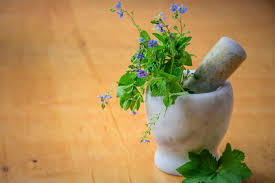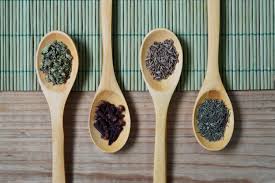|
I've been meaning to write this post for the past couple of days, but never came round to, but here it goes. Recently, I did an Ayurveda workshop as part of my Yoga teacher training and have gained very insightful knowledge - within and around the workshop.
First of all, I am a naturally suspicious person towards the whole Yoga, Ayurveda trend - for some areas you may even dare to use the word "sect". I am doing the training because Yoga is a great base for physical movement and since I cannot do ballet after my injury, I opted for Yoga as a great alternative. However, I do not buy into this whole vegan, Asia-obsessed, Shakti, karma trend evolving around the whole matter, which is why I was initially a little worried about this Ayurveda class, but the teacher was quite alright. True, she seemed to have a love for vegans, a side cut (not that this has anything to do with Ayurveda, it just irritated me) and a clear love for anything Asian. Yet generally, she was open for everything and explained Ayurveda in a concise and understandable manner. Which, obviously, opens the question of "what is Ayurveda?" Well, I will not explain in all details because a) you have Google to do that and b) it would take far too long and I am no expert. In a nutshell, Ayurveda is a holistic approach to the mind and body and translates from Sanskrit to "the knowledge of life". It covers massages, meditation and nutrition as one of the major parts, instilling that good nutrition makes a healthy body and only a healthy body can lead to a healthy mind. I found this train of thought utterly fascinating and, as I am currently trying to change my eating patterns into healthier ones, I thought the class was a good fit (she wrote, having a chocolate cake next to her). We also did some Yoga, which was horrible because my nose was still so blocked up that I couldn't do half of the poses and stretched instead (upon phrasing this sentence, it actually does not sound so horrible anymore). The major part was about good and healthy nutrition and the teacher introduced us to herbs and ways to cook Ayurvedan style. And this is were I took issue. You see, I get that Ayurveda comes from Asia, but I think it is crucial to transfer such systems into our own system. We are not Asians, but Europeans and I don't like this part of the Yoga trend where suddenly everything Asia does is perfect and simply gets imposed onto Europe without adapting to our own history and heritage. Europe has its own fantastic herbs and vegetables, yet suddenly everyone is eating quinoa, bulgur, curcuma and Indian herbal teas and spice mixtures. I am not saying enjoying foreign cuisine is wrong, on the contrary, but I feel Ayurveda in Europe using still Asian food is pretty hypocritical. The teacher permanently stressed the importance of keeping Ayurvedan food as simple as possible and eating regionally and seasonally - something I completely agree with. However, two sentences later she would praise the benefits of spices like curcuma, ginger or Tulsi - all plants which exclusively do not grow anywhere near Europe and have to be imported from distant countries via dirty oil ships or planes, which makes the whole idea absurd to me. The basic ideas the teacher explained were really fascinating facts like the Vata, Pitta, Kapha types which, according to which is predominant in you, you should adapt your eating style. I, for instance, am Vata, primarily, which is ether and air and has the features dry, unstable, fluid, cool and dynamic. Therefore, I need warm food, lots of root vegetable to ground myself and a clear day structure, so that my Vata does not go into overdrive. I thought these aspects were very fascinating and I have already used them to re-structure my daily life. However, she then suggested some recipes good for Vata and nearly all of them featured Indian spices. I think that eating curcuma or ginger is not necessary if I can have garlic, which also warms from the inside, or rosemary, which is also known for its anti-inflammatory and antioxidant qualities like curcuma. Healthy cooking, for me, is always about buying as regionally as possible and, with vegetables and fruit, only opting for seasonal products. We do not need pineapple or mango in our lives, which does not mean we cannot enjoy it now and then, but it just has nothing to do with our native food. Eating healthy should not only be about yourself, but also about ensuring short logistics. This is also why I cannot take vegans seriously. It is absurd that they seem to feel so superior towards all other people because they eat "right" (the vegans I have encountered, that is), yet buy quinoa which is imported from Latin America, Basmati rice which is harvested in the Himalayan area or bulgur, which originates from the Middle East. Even though all of these products are healthy and nutritious, buying them creates a huge ecological footprint on the planet, which could have been avoided by eating potatoes (yeah, I know they originally come from America, but they are grown in Europe now), millet or barley and using balm, stinging nettle or dandelion - plants which are all known for their super-healing powers and are, additionally, growing just outside your house. Another issue I had with the workshop was the vegan debate. Personally, I don't understand veganism or care about it, yet vegans seem to seek the Yoga trend like moths the light. Obviously, there they get the confirmation they desperately seek (and mostly didn't get from their daddies - ouch, what a burn). The teacher persistently stated we shouldn't follow food trends in the same breath that she claimed veganism was a great way to eat - which for me does not make sense, as veganism is THE biggest food trend out there and also derives from the Asian culture again. Obviously, many people are vegetarians or vegans there, but a) most are because they cannot afford meat and b) it is a long-rooted tradition in their history and social-geographical development. Buddhism promotes vegetarianism because of its philanthropic, no-harm-to-anybody philosophy and, with their climate being somewhat more benevolent, it is understandable they had more opportunities to grow than someone like the Vikings who lived through darkest winters and had to hunt and eat meat to stay strong and survive the cold season. I am not suggesting we are slaves to our history, but we must not forget our heritage and cherish it. I am sad that this whole new Asian trend is sweeping over our own culture and, instead of unearthing our own herbs and fantastic plants, people are eager to have goods imported from countries which are so far away, there is no chance it can be good for the planet. Let me tell you this, vegans out there, even if you eat vegan, the tanker shipping over your quinoa or bulgur is definitely not fuelled with vegan products, but with oil which can unleash a massive catastrophe on the oceans and eco-systems. But let me not rant on about vegans, because this was not the reasons for this post, I just got a little derailed and apologise for that. For myself I could collect a lot of fantastic things from this workshop, which I could already apply to my life. However, instead of eating too many imported goods, I will try to apply the Ayurveda aspects I want to engage with in a regional and seasonal way, instead of the Asian way. I will see how that goes and share any recipes with you I come up with. Additionally, I may do (MAY DO) a little piece on the best European herbs because I am doing some research on that at the moment. Finally, I want to state something both I and Ayurveda promote: Eat what makes you feel good, otherwise there is no use in it (apart from staying alive).
0 Comments
Leave a Reply. |
Angie
Writer. Editor. Blogger. YouTuber. Freelancer. Traveller. English fanatic. Archives
October 2023
|



